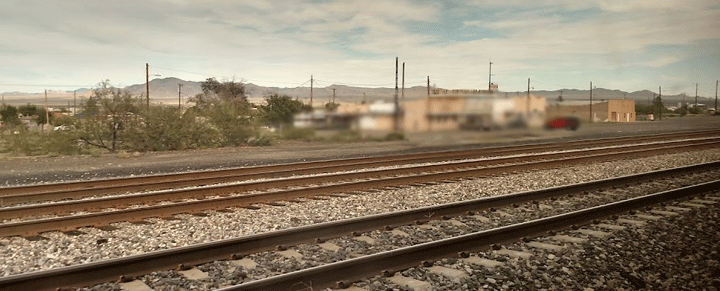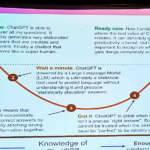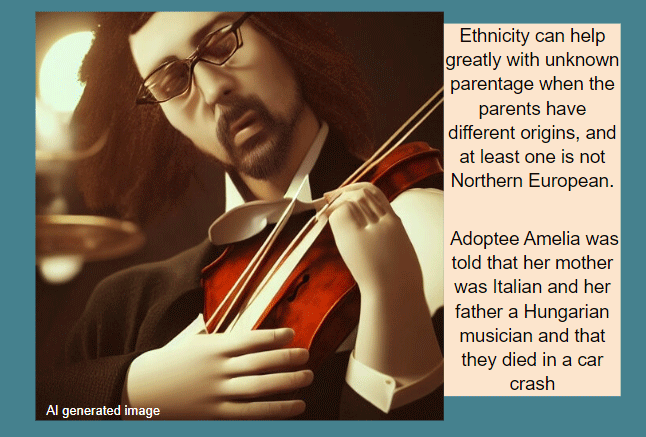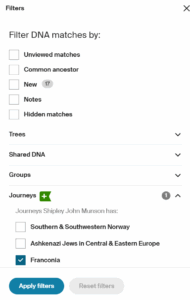 Modern day Germans do not seem to do DNA testing. I have one German grandparent born in Munich, with several generations of Bavarian ancestors, whose line I never get any matches to. Since this is my mother’s mother’s line with the paternal lines proven, the lack of matches is not due to an NPE (non parental event). For example, I have one German half 2nd cousin on my maternal grandmother’s father’s side who tested at my request (click here for that post).
Modern day Germans do not seem to do DNA testing. I have one German grandparent born in Munich, with several generations of Bavarian ancestors, whose line I never get any matches to. Since this is my mother’s mother’s line with the paternal lines proven, the lack of matches is not due to an NPE (non parental event). For example, I have one German half 2nd cousin on my maternal grandmother’s father’s side who tested at my request (click here for that post).
Ancestry has a nice new feature where you can filter your matches by Journeys (where your ancestors came from); see image to the left. I was disappointed not to have any German journeys, but my brother has something called Franconia. When I used that filter I found a good match at the top of his list. Richard, from Pennsylvania (think Pennsylvania Dutch aka Deutsch), with an Italian surname, shares 72cM with my brother, 62 cM with me, and 25 cM with our first cousin Margaret. Richard’s tree had no ancestors listed, but his closest shared match to us, a great nephew, did have a small tree. One thing I like to do with my Pro Tools is to change the way matches are sorted to be by the best ones for the match I am looking at, rather than the usual sort of those closest to me (see image below). Their close matches often have better trees or have notes I wrote to myself when I figured them out long ago.
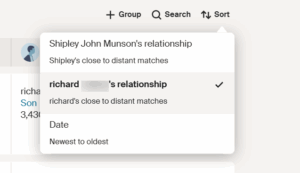 That nephew has all but one person showing as private in his tree. Luckily the one person whose name shows has the same surname as Richard. Next I clicked over to her profile page and used the Ancestry search function to find a more complete tree for her, which included her parents. Her mother Frances had a surname, LANG, that I knew was in my tree. She was even born in the same town, Eslarn, Bavaria, as my great grandmother Margaretha Wittman! Another search at ancestry found Francis’ Eslarn grandparents’ names in yet another tree, whose owner was also a distant DNA match.
That nephew has all but one person showing as private in his tree. Luckily the one person whose name shows has the same surname as Richard. Next I clicked over to her profile page and used the Ancestry search function to find a more complete tree for her, which included her parents. Her mother Frances had a surname, LANG, that I knew was in my tree. She was even born in the same town, Eslarn, Bavaria, as my great grandmother Margaretha Wittman! Another search at ancestry found Francis’ Eslarn grandparents’ names in yet another tree, whose owner was also a distant DNA match.
There is a useful German website – https://www.ortsfamilienbuecher.de/ – which has genealogy information from many German town lineage books, including the one for Eslarn. You can list everyone with a specific surname in your town to search for an individual. Be sure to check alternate spellings. Armed with the names of Frances Lang’s grandparents, I went to that source and traced her mother back to my great grandmother’s grandparents. This was not easy because the same names were used over and over again. Frances’ mother had the same name as my great grandmother. Also their fathers, who were uncle and nephew, had the same name, Joseph Widmann/Wittman. Complicated to figure this out, but birth years helped.
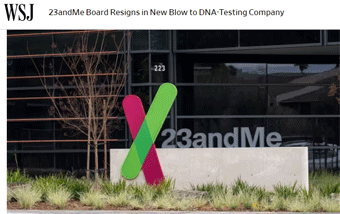 23andme has been in the news this week because its entire board, except its founder, Anne Wojcicki, resigned over her plan to take it private again.
23andme has been in the news this week because its entire board, except its founder, Anne Wojcicki, resigned over her plan to take it private again.